Last year, I joined the "produce your own food" project in the picking phase; it wasn't difficult for me to pick the fruits of other people's labor and enjoy all the flavors that are no longer available on market shelves.
I don't know about the rest of the city dwellers, but I've long been disappointed in products that I don't pay for cheaply. Mostly for this reason, I want to start my own food production so that I can have more control over what I eat.

After all, I learned so much growing up in the country that it would be a sin not to put it all to use, and perhaps even improve it into something more serious.
At the same time, I'm starting the new year by moving to the countryside, until then, we took advantage of a nice sunny day for the first phase.
In recent years, the terms eco, organic food production, and so on have become common in marketing... What does organic food production entail? Pesticides, growth hormones, and invasion should not be used on agricultural land; instead, renewable sources or products that are recyclable are the most welcome.
Despite the fact that nature has changed dramatically, new diseases and insects have emerged, making it increasingly difficult to get in the way.
I'd rather compost half of the rotten fruit from a stink bug bite and eat the healthy half with pleasure, knowing that it's safe enough that I don't even need to wash it before eating.
I grew up eating that way.
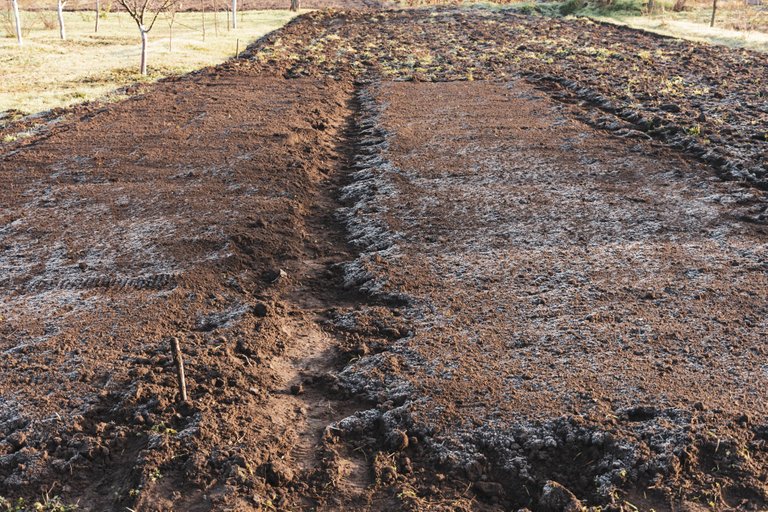
Our first step was to prepare the land; organic production should not include machines that use oil derivatives, but we lacked a couple of oxen. The most difficult part, however, required the use of a tractor, which formed the plot, literally turned the ground upside down, and thus exposed it to winter frosts - natural disinfection.
Equally, it is easier to clean the soil of various grass roots, remove shoots from previously planted crops, and soften it. We were extremely fortunate that the frost occurred during the night between cleaning and planting.
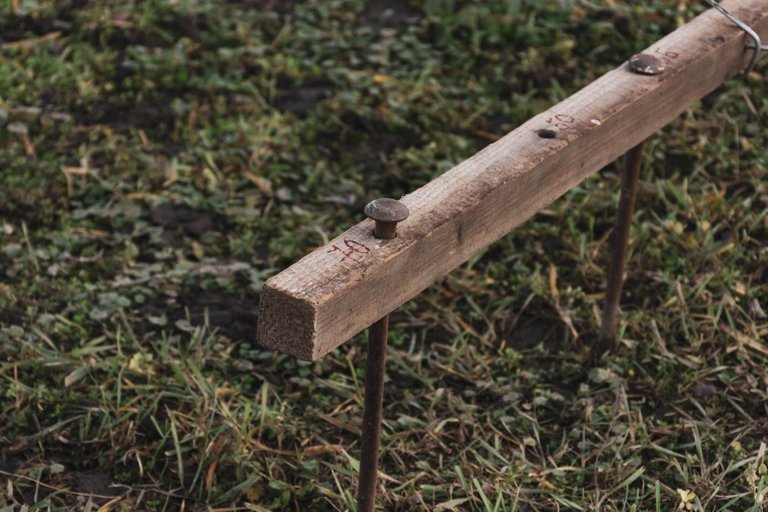
From the tractor on, we will do everything we can to make this garden as organic as possible.
If you're wondering what this device is for, it's used to create planting channels. The distance between the rows can be adjusted by moving the wedge through the holes marked with 75-35cm intervals.
We have a rake, a hoe, and two pair of hands next to. What is it that can be planted at this time of year?
Peas, onions, garlic, lettuce, I added leek too, even tho isn't time, but curiosity must be satisfied.
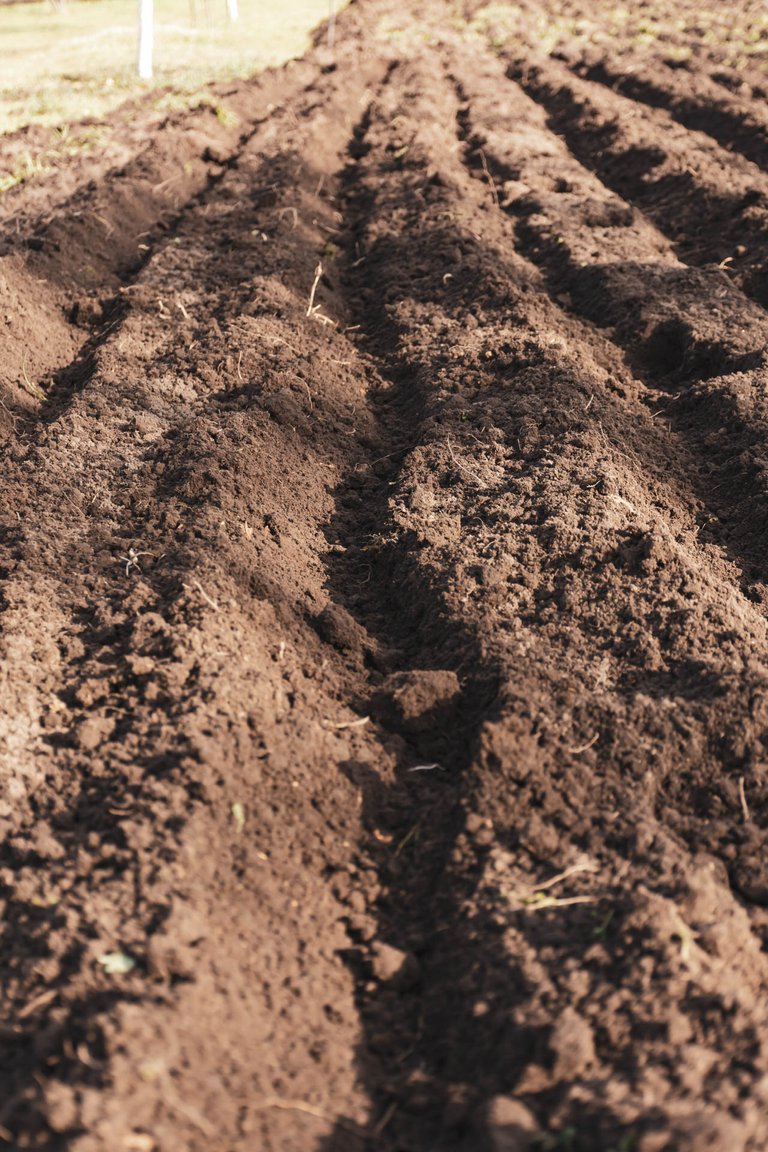
Rows about 10 centimeters deep, as well as the cloves from last year's garlic harvest, are ready.
Another factor that contributes to organic production is the ability to produce certain seeds yourself.
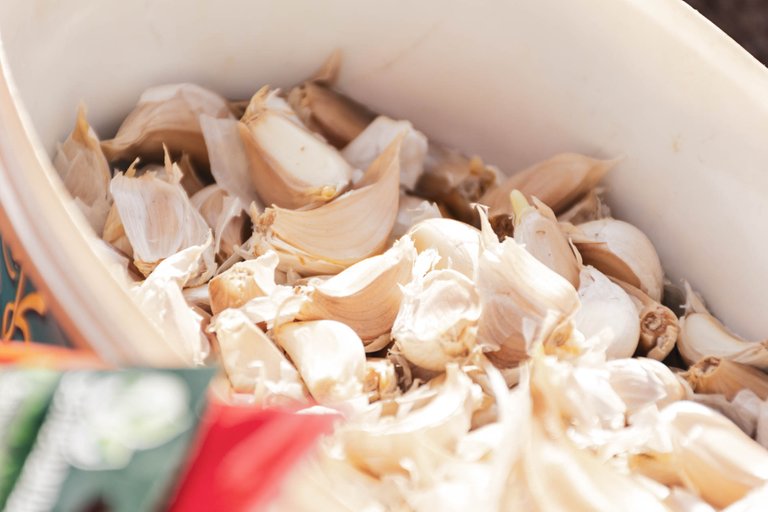
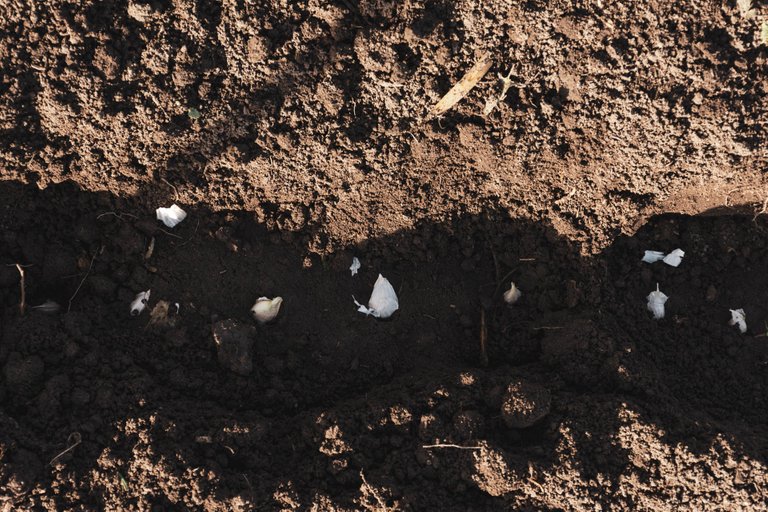
Press the root into the moist soil, the recommended distance between plants is about 5 cm, but let's be honest, how many cm up and down is always missing, the most important thing is to leave enough space for them to spread and grow.
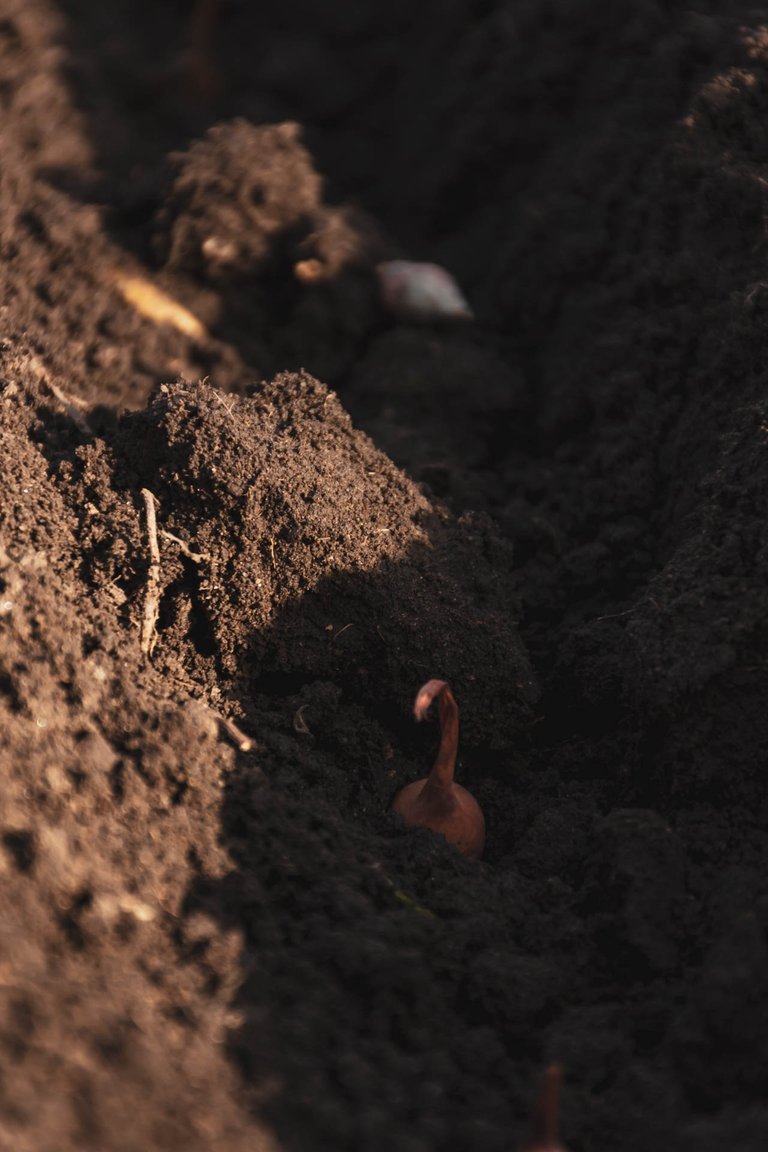
Black onions are planted right after the garlic; the seed onions are different from the ones we harvest (for my own seed production, I would need to learn more).
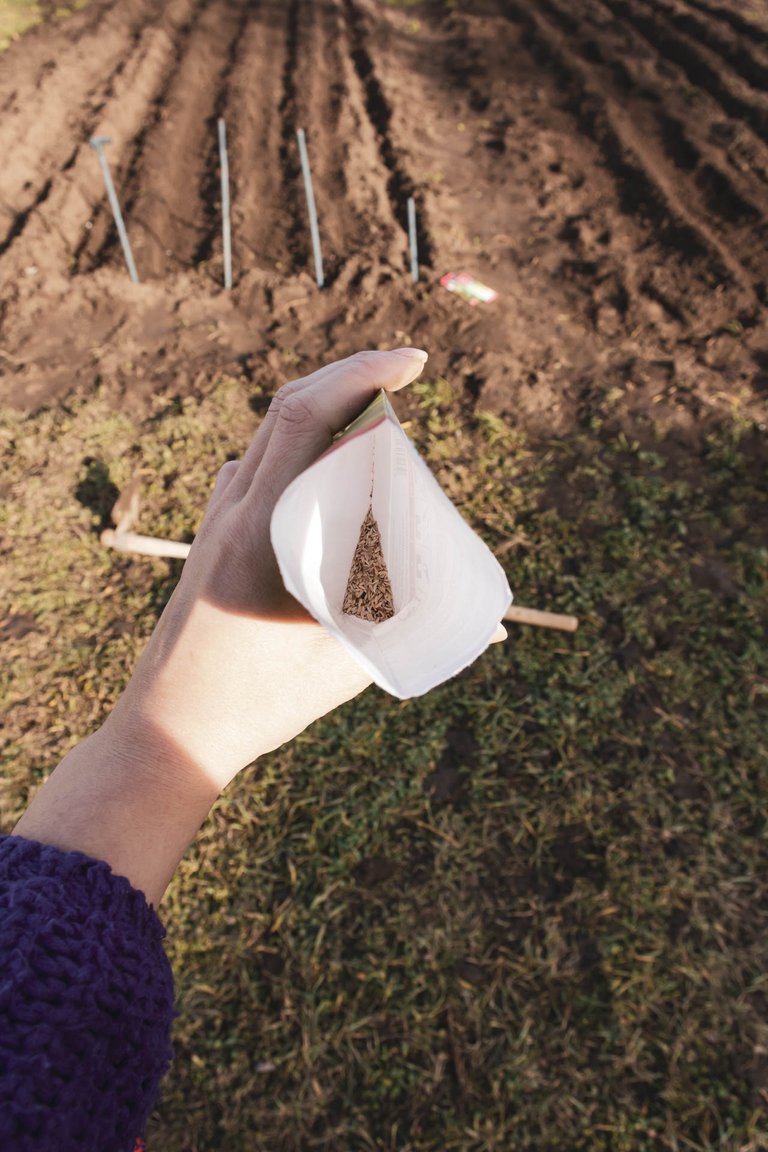
The seeds of lettuce are purchased in bags; they are separated for reproduction when the plant flowers. It is difficult to make a space with them because the seeds are so tiny, but I still tried not to make a crowd in the canal and spread them nicely.
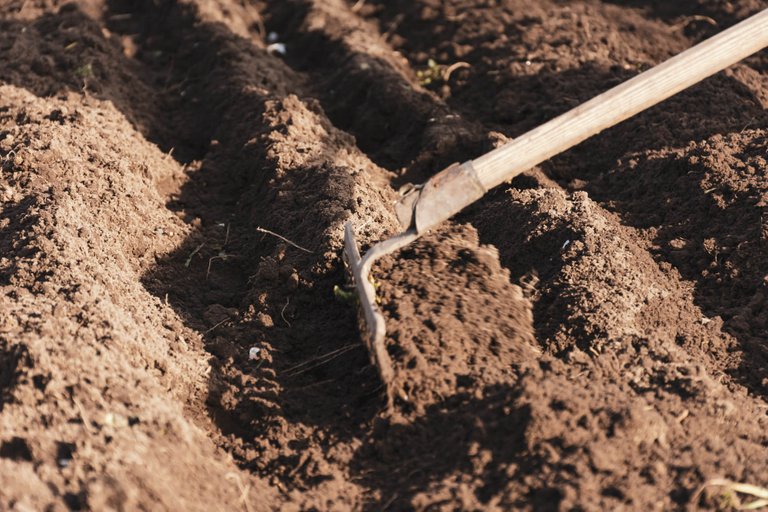
Each channel is lined with soil at the end, and the seeds are well tucked before being left to grow roots and produce their first shoots in the early spring.
By the way, I used to have my own thousand strawberry plants.
I love getting my hands dirty, seeing things grow, and, most of all, enjoying good food. I will be fertilizing the soil with calcium as the final spring preparation. Naturally, it runs out every year because the plants absorb all the minerals, so eggshells will be important in the effort to avoid using synthetic fertilizers.
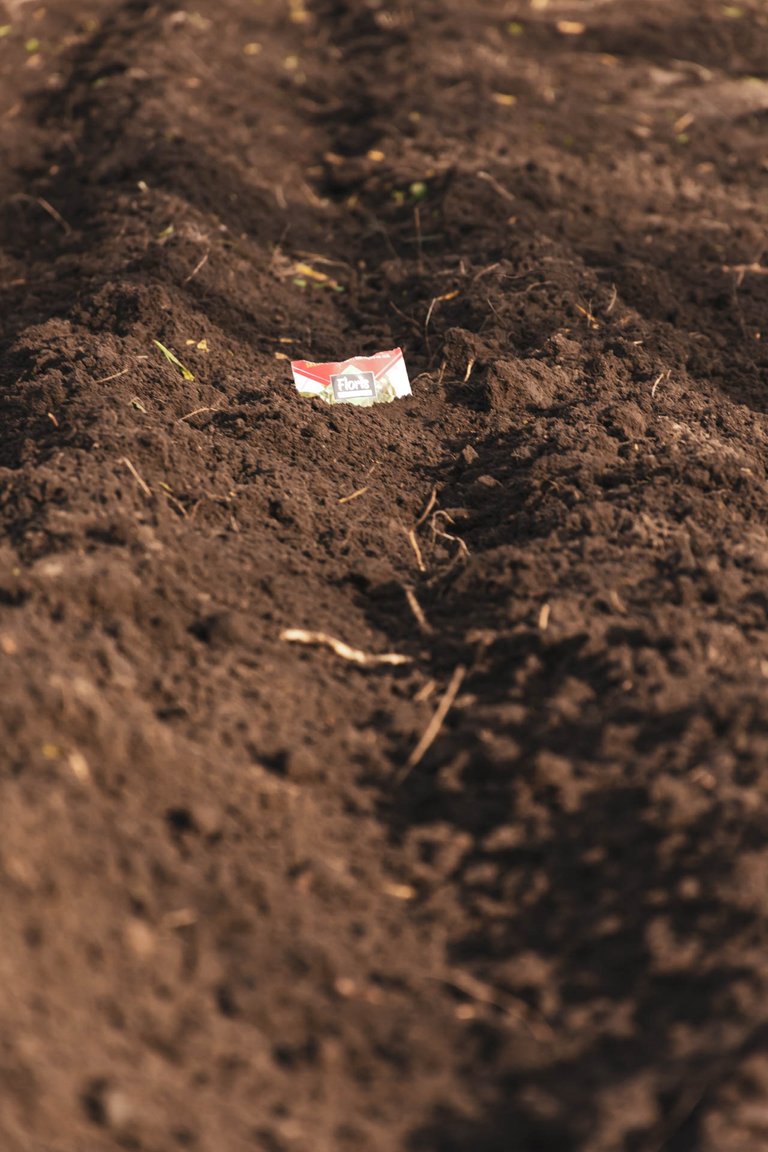
Eggshells can easily be dried in the oven, ground, and then sprinkled on the planting soil. Additionally, I made sure to prepare myself for the summer stink bug invasion that ruined the tomato crops the year before. For those small pests, I will make an elixir of nettles and garlic, which I will spray the plants with. Apparently, the smell repels them, and it's all within my reach, so why not try it.
If we're already talking about New Year's resolutions, this is my goal for 2023: to have as much decentralization and reliance on the market and the government as possible, step first - planted.









